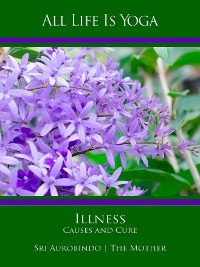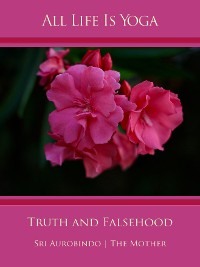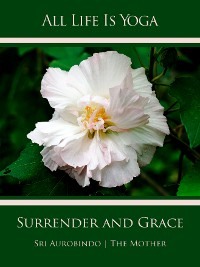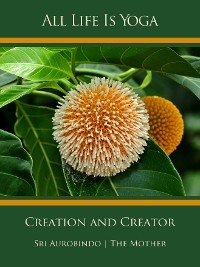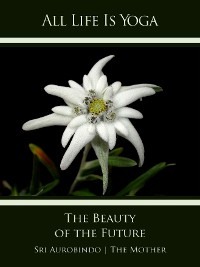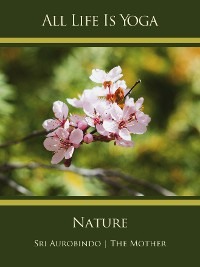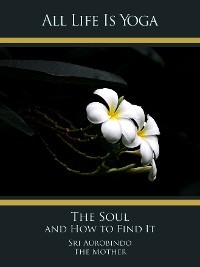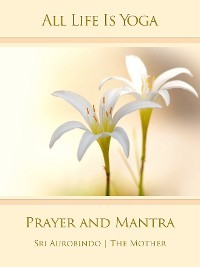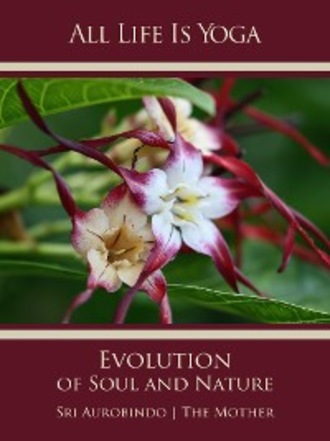
Полная версия
All Life Is Yoga: Evolution of Soul and Nature
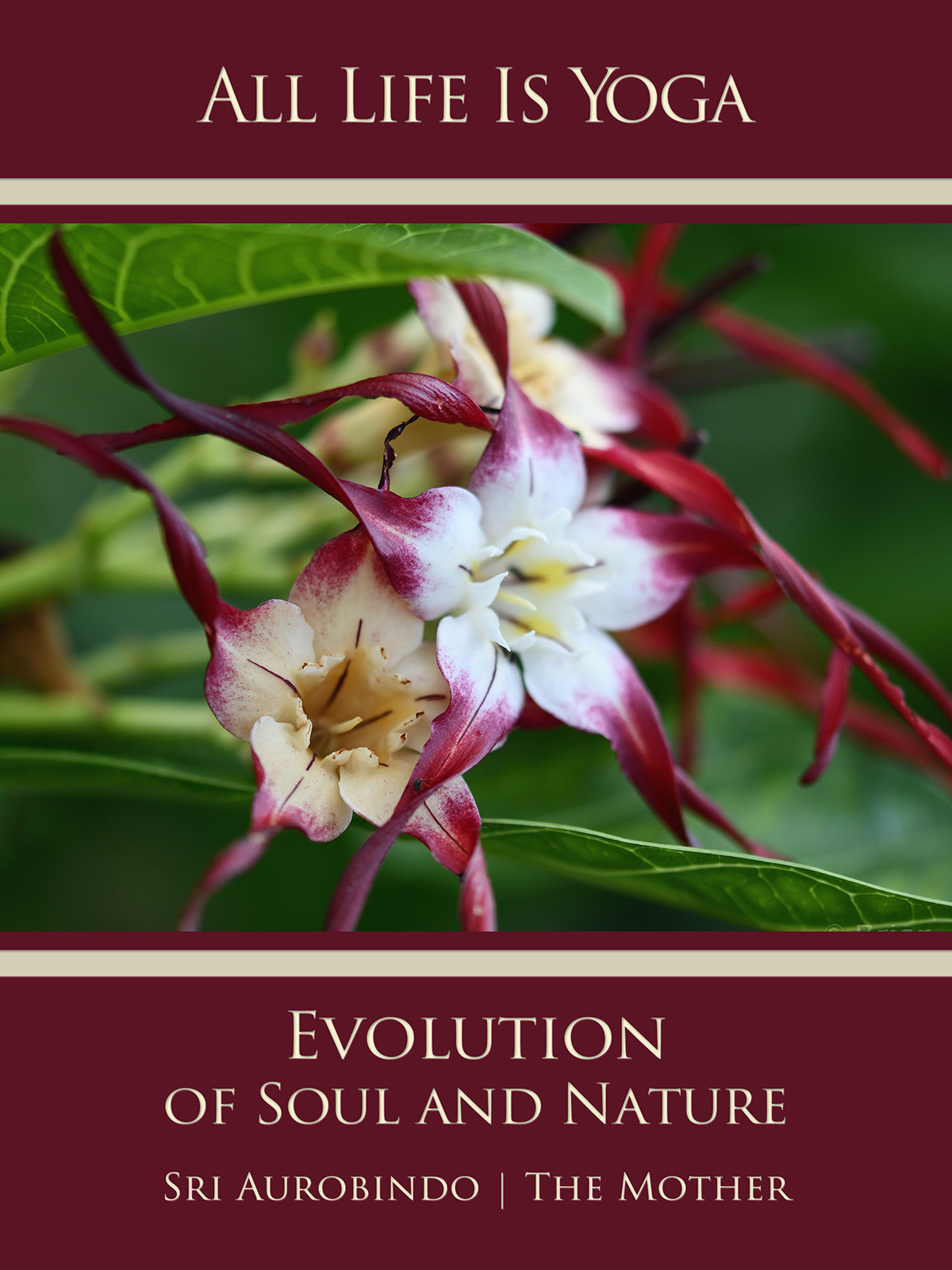

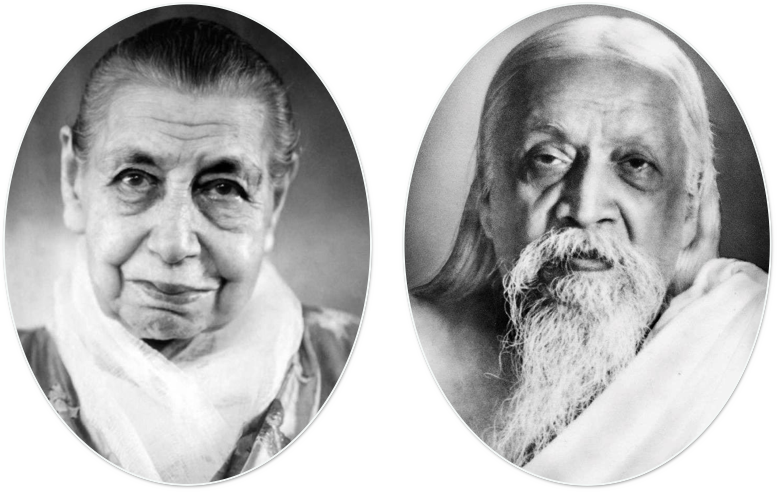
Omsriaurobindomira
All
Life
Is
Yoga
“All life is Yoga.” – Sri Aurobindo
Evolution of Soul and Nature
Sri Aurobindo | The Mother

SRI AUROBINDO
DIGITAL EDITION

Copyright 2020
AURO MEDIA
Verlag und Fachbuchhandel
Wilfried Schuh
www.auro.media
www.savitri.center
www.sriaurobindo.center
eBook Design

SRI AUROBINDO DIGITAL EDITION
Germany, Berchtesgaden
ALL LIFE IS YOGA
Evolution of Soul and Nature Selections from the Works of Sri Aurobindo and The Mother First edition 2020 ISBN 978-3-96387-055-2
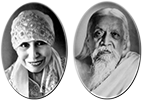
© Photos and selections of the works of Sri Aurobindo and the Mother:
Sri Aurobindo Ashram Trust
Puducherry, India

Flower on the cover:
Strophanthus. White and purple. Spiritual significance and explanation given by the Mother: Radiation of the manifestation The divine manifestation is spreading.
Publisher’s Note
This is one in a series of some e-books created by SRI AUROBINDO DIGITAL EDITION and published by AURO MEDIA under the title All Life Is Yoga. Our effort is to bring together, from Sri Aurobindo and the Mother, simple passages with a practical orientation on specific subjects, so that everyone may feel free to choose a book according to his inner need. The topics cover the whole field of human activity, because true spirituality is not the rejection of life but the art of perfecting life.
While the passages from Sri Aurobindo are in the original English, most of the passages from the Mother (selections from her talks and writings) are translations from the original French. We must also bear in mind that the excerpts have been taken out of their original context and that a compilation, in its very nature, is likely to have a personal and subjective approach. A sincere attempt, however, has been made to be faithful to the vision of Sri Aurobindo and the Mother. These excerpts are by no means exhaustive.
Bringing out a compilation from the writings of Sri Aurobindo and the Mother, which have a profound depth and wideness unique, is a difficult task. The compiler’s subjective tilt and preferences generally result in highlighting some aspects of the issues concerned while the rest is by no means less significant. Also without contexts of the excerpts the passages reproduced may not fully convey the idea – or may be misunderstood or may reduce a comprehensive truth into what could appear like a fixed principle.
The reader may keep in mind this inherent limitation of compilations; compilations are however helpful in providing an introduction to the subject in a handy format. They also give the readers a direct and practical feel of some of the profound issues and sometimes a mantric appeal, musing on which can change one’s entire attitude to them.
The excerpts from the writings of Sri Aurobindo and the Mother carry titles and captions chosen by the editor, highlighting the theme of the excerpts and, whenever possible, borrowing a phrase from the text itself. The sources of the excerpts are given at the end of each issue.
We hope these compilations will inspire the readers to go to the complete works of Sri Aurobindo and the Mother and will help them to mould their lives and their environments towards an ever greater perfection.
“True spirituality is not to renounce life, but to make life perfect with a Divine Perfection.” – The Mother
* * *
ContentsTitle PageCopyrightPublisher’s NoteI. REBIRTH AND EVOLUTION1. Rebirth2. The Reincarnating Soul3. Rebirth, Evolution, Heredity4. Rebirth and Soul Evolution5. The Significance of Rebirth6. The Ascending Unity7. Involution and EvolutionII. THE EVOLUTION OF THE SPIRITUAL MAN1. The Philosophy of Rebirth2. The Order of the Worlds3. Rebirth and Other Worlds – Karma, the Soul and Immortality4. Man and the Evolution5. The Evolution of the Spiritual ManIII. YOGA AND EVOLUTION1. Life and Yoga2. The Evolutionary Aim in Yoga3. Evolution and Yoga – One Movement and the Same Journey4. What is NatureIV. THE PSYCHIC – ITS NATURE, ROLE AND EVOLUTION1. The Psychic Being2. Role, Function and Action of the Psychic3. Growth and Development of the PsychicV. THE UNITY OF GOD, MAN AND NATURE1. The Involved and Evolving Godhead2. The Evolution of Consciousness3. The Progress to Knowledge – God, Man and Nature4. The Evolutionary Process – Ascent and IntegrationAPPENDIXReferencesGuideCoverTable of ContentsStart Reading
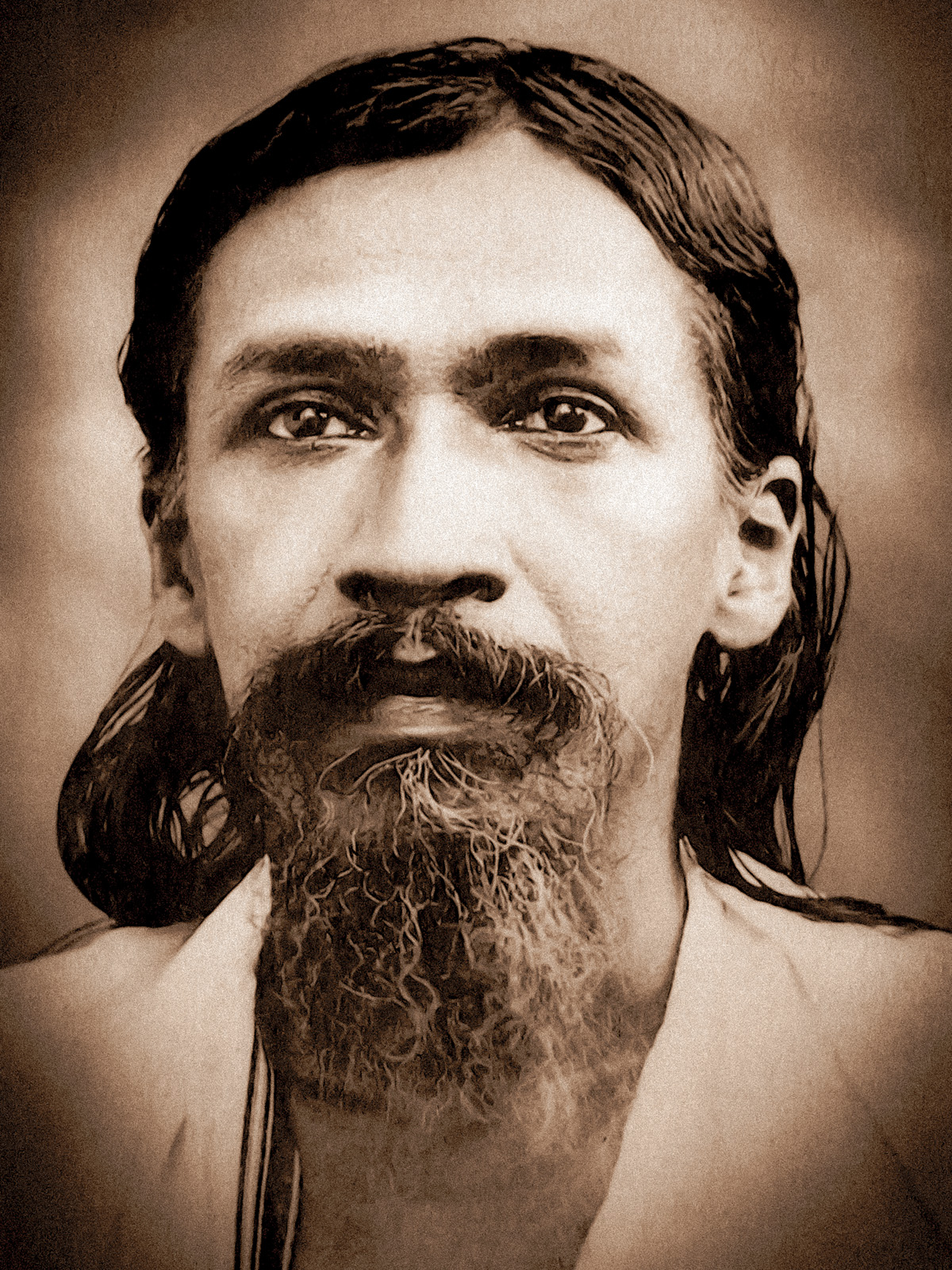
Sri Aurobindo
All is not finished in the unseen decree;
A Mind beyond our mind demands our ken,
A life of unimagined harmony
Awaits, concealed, the grasp of unborn men.
The crude beginnings of the lifeless earth,
The mindless stirrings of the plant and tree
Prepared our thought; thought for a godlike birth
Broadens the mould of our mortality.
A might no human will nor force can gain,
A knowledge seated in eternity,
A bliss beyond our struggle and our pain
Are the high pinnacles of our destiny.
O Thou who climb’dst to mind from the dull stone,
Face now the miracled summits still unwon.
— Sri Aurobindo
* * *
Chapter 1
Rebirth
Words of Sri Aurobindo
The theory of rebirth is almost as ancient as thought itself and its origin is unknown. We may according to our prepossessions accept it as the fruit of ancient psychological experience always renewable and verifiable and therefore true or dismiss it as a philosophical dogma and ingenious speculation; but in either case the doctrine, even as it is in all appearance well-nigh as old as human thought itself, is likely also to endure as long as human beings continue to think.
In former times the doctrine used to pass in Europe under the grotesque name of transmigration which brought with it to the Western mind the humorous image of the soul of Pythagoras migrating, a haphazard bird of passage, from the human form divine into the body of a guinea-pig or an ass. The philosophical appreciation of the theory expressed itself in the admirable but rather unmanageable Greek word, metempsychosis, which means the insouling of a new body by the same psychic individual. The Greek tongue is always happy in its marriage of thought and word and a better expression could not be found; but forced into English speech the word becomes merely long and pedantic without any memory of its subtle Greek sense and has to be abandoned. Reincarnation is the now popular term, but the idea in the word leans to the gross or external view of the fact and begs many questions. I prefer “rebirth”, for it renders the sense of the wide, colourless, but sufficient Sanskrit term, punarjanma, “again-birth”, and commits us to nothing but the fundamental idea which is the essence and life of the doctrine.
Rebirth is for the modern mind no more than a speculation and a theory; it has never been proved by the methods of modern science or to the satisfaction of the new critical mind formed by a scientific culture. Neither has it been disproved; for modern science knows nothing about a before-life or an after-life for the human soul, knows nothing indeed about a soul at all, nor can know; its province stops with the flesh and brain and nerve, the embryo and its formation and development. Neither has modern criticism any apparatus by which the truth or untruth of rebirth can be established. In fact, modern criticism, with all its pretensions to searching investigation and scrupulous certainty, is no very efficient truth-finder. Outside the sphere of the immediate physical it is almost helpless. It is good at discovering data, but except where the data themselves bear on the surface their own conclusion, it has no means of being rightly sure of the generalisations it announces from them so confidently in one generation and destroys in the next. It has no means of finding out with surety the truth or untruth of a doubtful historical assertion; after a century of dispute it has not even been able to tell us yes or no, whether Jesus Christ ever existed. How then shall it deal with such a matter as this of rebirth which is stuff of psychology and must be settled rather by psychological than physical evidence?
The arguments which are usually put forward by supporters and opponents, are often weak or futile and even at their best insufficient either to prove or to disprove anything in the world. One argument, for instance, often put forward triumphantly in disproof is this that we have no memory of our past lives and therefore there were no past lives! One smiles to see such reasoning seriously used by those who imagine that they are something more than intellectual children. The argument proceeds on psychological grounds and yet it ignores the very nature of our ordinary or physical memory which is all that the normal man can employ. How much do we remember of our actual lives which we are undoubtedly living at the present moment? Our memory is normally good for what is near, becomes vaguer or less comprehensive as its objects recede into the distance, farther off seizes only some salient points and, finally, for the beginning of our lives falls into a mere blankness. Do we remember even the mere fact, the simple state of being an infant on the mother’s breast? and yet that state of infancy was, on any but a Buddhist theory, part of the same life and belonged to the same individual, – the very one who cannot remember it just as he cannot remember his past lives. Yet we demand that this physical memory, this memory of the brute brain of man which cannot remember our infancy and has lost so much of our later years, shall recall that which was before infancy, before birth, before itself was formed. And if it cannot, we are to cry, “Disproved your reincarnation theory!” The sapient insipiency of our ordinary human reasoning could go no farther than in this sort of ratiocination. Obviously, if our past lives are to be remembered whether as fact and state or in their events and images, it can only be by a psychical memory awaking which will overcome the limits of the physical and resuscitate impressions other than those stamped on the physical being by physical cerebration.
I doubt whether, even if we could have evidence of the physical memory of past lives or of such a psychical awakening, the theory would be considered any better proved than before. We now hear of many such instances confidently alleged though without that apparatus of verified evidence responsibly examined which gives weight to the results of psychical research. The sceptic can always challenge them as mere fiction and imagination unless and until they are placed on a firm basis of evidence. Even if the facts alleged are verified, he has the resource of affirming that they are not really memories but were known to the person alleging them by ordinary physical means or were suggested to him by others and have been converted into reincarnate memory either by conscious deception or by a process of self-deception and self-hallucination. And even supposing the evidence were too strong and unexceptionable to be got rid of by these familiar devices, they might yet not be accepted as proof of rebirth; the mind can discover a hundred theoretical explanations for a single group of facts. Modern speculation and research have brought in this doubt to overhang all psychical theory and generalisation.
We know for instance that in the phenomena, say, of automatic writing or of communication from the dead, it is disputed whether the phenomena proceed from outside, from disembodied minds, or from within, from the subliminal consciousness, or whether the communication is actual and immediate from the released personality or is the uprising to the surface of a telepathic impression which came from the mind of the then living man but has remained submerged in our subliminal mentality. The same kind of doubts might be opposed to the evidences of reincarnate memory. It might be maintained that they prove the power of a certain mysterious faculty in us, a consciousness that can have some inexplicable knowledge of past events, but that these events may belong to other personalities than ours and that our attribution of them to our own personality in past lives is an imagination, a hallucination, or else an instance of that self-appropriation of things and experiences perceived but not our own which is one out of the undoubted phenomena of mental error. Much would be proved by an accumulation of such evidences but not, to the sceptic at least, rebirth. Certainly, if they were sufficiently ample, exact, profuse, intimate, they would create an atmosphere which would lead in the end to a general acceptance of the theory by the human race as a moral certitude. But proof is a different matter.
After all, most of the things that we accept as truths are really no more than moral certitudes. We have all the profoundest unshakable faith that the earth revolves on its own axis, but as has been pointed out by a great French mathematician, the fact has never been proved; it is only a theory which accounts well for certain observable facts, no more. Who knows whether it may not be replaced in this or another century by a better – or a worse? All observed astronomical phenomena were admirably accounted for by theories of spheres and I know not what else, before Galileo came in with his “And yet it moves,” disturbing the infallibility of Popes and Bibles and the science and logic of the learned. One feels certain that admirable theories could be invented to account for the facts of gravitation if our intellects were not prejudiced and prepossessed by the anterior demonstrations of Newton.1 This is the ever-perplexing and inherent plague of our reason; for it starts by knowing nothing and has to deal with infinite possibilities, and the possible explanations of any given set of facts, until we actually know what is behind them, are endless. In the end, we really know only what we observe and even that subject to a haunting question, for instance, that green is green and white is white, although it appears that colour is not colour but something else that creates the appearance of colour. Beyond observable fact we must be content with reasonable logical satisfaction, dominating probability and moral certitude, – at least until we have the sense to observe that there are faculties in us higher than the sense-dependent reason and awaiting development by which we can arrive at greater certainties.
We cannot really assert as against the sceptic any such dominant probability or any such certitude on behalf of the theory of rebirth. The external evidence yet available is in the last degree rudimentary. Pythagoras was one of the greatest of sages, but his assertion that he fought at Troy under the name of the Antenorid and was slain by the younger son of Atreus is an assertion only and his identification of the Trojan shield will convince no one who is not already convinced; the modern evidence is not as yet any more convincing than the proof of Pythagoras. In absence of external proof which to our matter-governed sensational intellects is alone conclusive, we have the argument of the reincarnationists that their theory accounts for all the facts better than any other yet advanced. The claim is just, but it does not create any kind of certitude. The theory of rebirth coupled with that of Karma gives us a simple, symmetrical, beautiful explanation of things; but so too the theory of the spheres gave us once a simple, symmetrical, beautiful explanation of the heavenly movements. Yet we have now got quite another explanation, much more complex, much more Gothic and shaky in its symmetry, an inexplicable order evolved out of chaotic infinities, which we accept2 as the truth of the matter. And yet, if we will only think, we shall perhaps see that even this is not the whole truth; there is much more behind we have not yet discovered. Therefore the simplicity, symmetry, beauty, satisfactoriness of the reincarnation theory is no warrant of its certitude.
When we go into details, the uncertainty increases. Rebirth accounts, for example, for the phenomenon of genius, inborn faculty and so many other psychological mysteries. But then Science comes in with its all-sufficient explanation by heredity, – though, like that of rebirth, all-sufficient only to those who already believe in it. Without doubt, the claims of heredity have been absurdly exaggerated. It has succeeded in accounting for much, not all, in our physical make-up, our temperament, our vital peculiarities. Its attempt to account for genius, inborn faculty and other psychological phenomena of a higher kind is a pretentious failure. But this may be because Science knows nothing at all that is fundamental about our psychology, – no more than primitive astronomers knew of the constitution and law of the stars whose movements they yet observed with a sufficient accuracy. I do not think that even when Science knows more and better, it will be able to explain these things by heredity; but the scientist may well argue that he is only at the beginning of his researches, that the generalisation which has explained so much may well explain all, and that at any rate his hypothesis has had a better start in its equipment of provable facts than the theory of reincarnation.
Nevertheless, the argument of the reincarnationist is so far a good argument and respect-worthy, though not conclusive. But there is another more clamorously advanced which seems to me to be on a par with the hostile reasoning from absence of memory, at least in the form in which it is usually advanced to attract unripe minds. This is the ethical argument by which it is sought to justify God’s ways with the world or the world’s ways with itself. There must, it is thought, be a moral governance for the world; or at least some sanction of reward in the cosmos for virtue, some sanction of punishment for sin. But upon our perplexed and chaotic earth no such sanction appears. We see the good man thrust down into the press of miseries and the wicked flourishing like a green bay-tree and not cut down miserably in his end. Now this is intolerable. It is a cruel anomaly, it is a reflection on God’s wisdom and justice, almost a proof that God is not; we must remedy that. Or if God is not, we must have some other sanction for righteousness.
How comforting it would be if we could tell a good man and even the amount of his goodness, – for should not the Supreme be a strict and honourable accountant? – by the amount of ghee that he is allowed to put into his stomach and the number of rupees he can jingle into his bank and the various kinds of good luck that accrue to him. Yes, and how comforting too if we could point our finger at the wicked stripped of all concealment and cry at him, “O thou wicked one! for if thou wert not evil, wouldst thou in a world governed by God or at least by good, be thus ragged, hungry, unfortunate, pursued by griefs, void of honour among men? Yes, thou art proved wicked, because thou art ragged. God’s justice is established.” The Supreme Intelligence being fortunately wiser and nobler than man’s childishness, this is impossible But let us take comfort! It appears that if the good man has not enough good luck and ghee and rupees, it is because he is really a scoundrel suffering for his crimes, – but a scoundrel in his past life who has suddenly turned a new leaf in his mother’s womb; and if yonder wicked man flourishes and tramples gloriously on the world, it is because of his goodness – in a past life, the saint that was then having since been converted – was it by his experience of the temporal vanity of virtue? – to the cult of sin. All is explained, all is justified. We suffer for our sins in another body; we shall be rewarded in another body for our virtues in this; and so it will go on ad infinitum. No wonder, the philosophers found this a bad business and proposed as a remedy to get rid of both sin and virtue and even as our highest good to scramble anyhow out of a world so amazingly governed.
Obviously, this scheme of things is only a variation of the old spiritual-material bribe and menace, the bribe of a Heaven of fat joys for the good and the threat of a hell of eternal fire or bestial tortures for the wicked. The idea of the Law of the world as primarily a dispenser of rewards and punishments is cognate to the idea of the Supreme Being as a judge, “father” and school-master who is continually rewarding with lollipops his good boys and continually caning his naughty urchins. It is cognate also to the barbarous and unthinking system of sometimes savage and always degrading punishment for social offences on which human society, unable still to find out or organise a more satisfactory way, is still founded. Man insists continually on making God in his own image instead of seeking to make himself more and more in the image of God, and all these ideas are the reflection of the child and the savage and the animal in us which we have still failed to transform or outgrow. We should be inclined to wonder how these fancies of children found their way into such profound philosophical religions as Buddhism and Hinduism, if it were not so patent that men will not deny themselves the luxury of tacking on the rubbish from their past to the deeper thoughts of their sages.
No doubt, since these ideas were so prominent, they must have had their use in training humanity. Perhaps even it is true that the Supreme deals with the child soul according to its childishness and allows it to continue its sensational imaginations of heaven and hell for a time beyond the death of the physical body. Perhaps both these ideas of after-life and of rebirth as fields of punishment and reward were needed because suited to our half-mentalised animality. But after a certain stage the system ceases to be really effective. Men believe in Heaven and Hell but go on sinning merrily, quit at last by a Papal indulgence or the final priestly absolution or a death-bed repentance or a bath in the Ganges or a sanctified death at Benares, – such are the childish devices by which we escape from our childishness! And in the end the mind grows adult and puts the whole nursery nonsense away with contempt. The reward and punishment theory of rebirth, if a little more elevated or at least less crudely sensational, comes to be as ineffective. And it is good that it should be so. For it is intolerable that man with his divine capacity should continue to be virtuous for a reward and shun sin out of terror. Better a strong sinner than a selfish virtuous coward or a petty hucksterer with God; there is more divinity in him, more capacity of elevation. Truly the Gita has said well, krpanah phalahetavah3. And it is inconceivable that the system of this vast and majestic world should have been founded on these petty and paltry motives. There is reason in these theories? then reason of the nursery, puerile. Ethics? then ethics of the mud, muddy.


